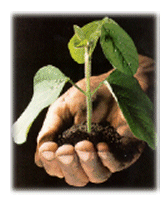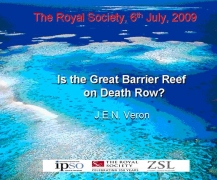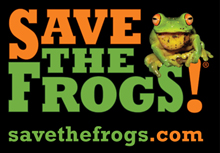
Logan and Albert Conservation Association


We are planning to work at these sites eack weekend Saturday 17 October to Saturday 05 December 2009 8.00am to 11.00am
PLEASE BYO DRINKING WATER, wear appropriate footwear, gloves and hat.
Bringing a bucket or two - if you can - it will help speed up the watering process
Please see the attached Working Bee Schedule for the remainder of 2009. VERESDALE-Scrub_Working_Bee_Schedule_Oct_Nov_2009.xls
VERESDALE-Scrub_Working_Bee_Schedule_Oct_Nov_2009.xls
Thank you for your continued interest in the Veresdale Scrub Project. New helpers are always welcome. We would appreciate your contacting Carla beforehand unless you are coming along with a 'regular' helper.
Contact Carla Parker Phone: 5543 2414 or 0408 785448 Email: This email address is being protected from spambots. You need JavaScript enabled to view it.

Koalas and SEQ Climate Change Management Plan
Actions to support SEQKA - South
![]() Queensland's attempt to build what it calls "Australia's greenest dam", is about to be put to the test. Green groups and local residents have long argued the project would result in serious environmental damage and one particular issue we are focussing on is the plight of the Australian lungfish.
Queensland's attempt to build what it calls "Australia's greenest dam", is about to be put to the test. Green groups and local residents have long argued the project would result in serious environmental damage and one particular issue we are focussing on is the plight of the Australian lungfish.
ABC 7.30 Report from 5 October 2009 provided an opportunity for community , government and scientists to present their views. The only existing fishway in the world that's been designed for the lungfish is at Paradise Dam, and so far, that's failed to work effectively. Why would Traveston be any different? Burnett Water, the dam operator,applied to have the case adjourned - It will recommence Monday 9 November 2009.
Part of the transcript appears below from http://www.abc.net.au/7.30/ where you can also watch a video of the program.
The Healthy Country project is supporting communities, farmers and scientists to work together to improve water quality in South East Queensland catchments and Moreton Bay. An estimated average of more than 315,000 tonnes of sediment is discharged to Moreton Bay each year from various sources across South East Queensland. The four-year Healthy Country project focuses on ways to reduce sediments and nutrients entering our waterways locally and in the Bay. The focus is on three priority catchments, Logan and Bremer Rivers and Lockyer Creek.
Following the Healthy Country launch ceremony, site visits to current projects within the Bremer focal area were conducted which provided an opportunity for the Minister and local landholders to discuss projects associated with stream rehabilitation, improved production practices and gully remediation.
 On the 6th July, 2009, the Royal Society, the Zoological Society of London and the International Programme on the State of the Ocean facilitated a Coral Reef Crisis meeting to identify key thresholds of atmospheric carbon dioxide needed for coral reefs to remain viable.
On the 6th July, 2009, the Royal Society, the Zoological Society of London and the International Programme on the State of the Ocean facilitated a Coral Reef Crisis meeting to identify key thresholds of atmospheric carbon dioxide needed for coral reefs to remain viable.
The meeting consisted of a workshop and a presentation by Dr John "Charlie" Veron, introduced by Sir David Attenborough. There is a powerpoint presentation available for download from and you can view the 61 minute presentation from here.
http://royalsociety.org/page.asp?id=3093#
Charlie Veron is best known as the author of the three volume Corals of the World. He is also the senior author of the major electronic products Coral ID and Coral Geographic. Veron is the author of 100 scientific articles, including 14 books and monographs, on subjects ranging from climate change, molecular biology, palaeontology, coral identification, biogeography, coral reefs, conservation, marine science policy, marine science history, cell biology, reptilian physiology and biography. He is former Chief Scientist of the Australian Institute of Marine Science. He has discovered and described 20% of all coral species of the world. He has worked in all the major coral reef regions of the world, participating in 66 expeditions and spending 7,000 hours scuba diving.
He continues to work in many different fields although he now concentrates on conservation and the effects of climate change on coral reefs.
Download or access the presentation from this link. http://www.coralreefresearch.org/html/crr_rs.htm
Charlie Veron is also a contributor on this CLIMATE CHANGE PORTAL. See his reef coments here. http://www.climateshifts.org/?p=151
 ABC Fora is the result of an exciting new editorial partnership between the ABC and US web group www.fora.tv. Combining content sourced by the ABC from talks events all over Australia with the international material provided by fora.tv, ABC Fora will bring you the most engaging and interesting speeches and debates from all over the world.
ABC Fora is the result of an exciting new editorial partnership between the ABC and US web group www.fora.tv. Combining content sourced by the ABC from talks events all over Australia with the international material provided by fora.tv, ABC Fora will bring you the most engaging and interesting speeches and debates from all over the world.
Farming has become an occupation and cultural force of the past. Michael Pollan's talk promotes the premise -- and hope -- that farming can become an occupation and force of the future. In the past century American farmers were given the assignment to produce lots of calories cheaply, and they did. Listen to the talk here.
In the past century American farmers were given the assignment to produce lots of calories cheaply, and they did. They became the most productive humans on earth. A single farmer in Iowa could feed 150 of his neighbors. That is a true modern miracle.
"American farmers are incredibly inventive, innovative, and accomplished. They can do whatever we ask them, we just need to give them a new set of requirements." The same applies to all farmers who are willing to reflect and review current practices and are interested in real sustainability.
 SAVE THE FROGS! is an international team of scientists, educators, policymakers and naturalists dedicated to protecting the world's amphibian species: the frogs, toads, newts, salamanders, and caecilians.
SAVE THE FROGS! is an international team of scientists, educators, policymakers and naturalists dedicated to protecting the world's amphibian species: the frogs, toads, newts, salamanders, and caecilians.
Frogs are going extinct NOW - worldwide - in Australia and locally in our area in South east Queeensland. The rapid loss and disappearance of amphibian populations in recent decades is undoubtedly one of the most tragic losses of biodiversity our society has ever witnessed, and is one of the most serious environmental issues of our time. Loss of biodiversity has far reaching implications.
We can all help by reducing our individual impact on the planet, by sharing our concern with others, and by making our politicians, our representatives in government aware of our concerns.
One very useful action - of benefit to human health as well as other species is to avoid the use of toxic pesticides. From the forum we read that pesticides and herbicides are toxic chemicals that generally undergo little to no testing on amphibians prior to their being approved for use. Unfortunately, the law of gravity has it that many of these pesticides end up in waterways, where amphibians live and breed. To make matters worse, amphibians have permeable skin that is highly absorbent.
Glossy Black-Cockatoos are labelled as Vulnerable in Queensland and Threatened on a National Level. Presently, little is known about the current movements of the Glossy's populations and their specific habitat selection.
The Glossy Black-Cockatoo is located in the South-Eastern corner of Queensland, Eastern New South Wales, extending slightly into Victoria with populations known in South Australia and Kangaroo Island.
Glossy Black-Cockatoos are specialized feeders of Allocasuarina seeds (Allocasuarina torulosa, Allocasuarina littoralis) and some Casuarina species (Casuarina equisetifolia). They feed from the seeds located within the barky cone. Allocasuarina species are frequent in the Gold Coast and South-east Queensland region. These trees grow throughout Logan and Scenic Rim Region. Allocasuarina littoralis grows extensively in south west Logan - an area targeted by state government and Logan council as identified future growth areas. Allocasuarina torulosa grows extensively in the ranges and higher ridges of Scenic Rim.
Population
Total population estimates as of 2006 were less then 18 000. As of 2005, there was a declining population of Glossy Black-Cockatoos in Queensland, with estimates of population numbers being between 1000 and 2500. On the Gold Coast population numbers are unknown.
Conservation status and threats
All states in which Glossy Black-Cockatoos are located have been labeled Vulnerable or Endangered. The Australian Government has declared the status of the Glossy Black-Cockatoo, on a national level, as Threatened.
Roosting/breeding trees are being cleared throughout the South-Eastern Queensland region. Suitable trees for breeding are usually large with the presence of hollows in which the cockatoos can adequately roost and breed. Native Australian trees, like Eucalyptus Species, take a considerable amount of time to form large hollows.
Identification
Females can be told apart from males via blotches of yellow located on the head and neck. The head may also be darker then the male. Juveniles will also have a darker head with small spots on the shoulder or breast.
Feeding
Glossy Black-Cockatoos feed on the seeds of Allocasuarina species with the Black She-Oak (Allocasuarina littoralis) being the favored Allocasuarina species. They have been recorded spending approximately 88% of the day foraging for Allocasuarina seeds.
Breeding
Breeding occurs every two years with a single egg being laid in late January to early June with a longer nestling period then any other cockatoos (up to 90 days). Large hollow trees are needed for a breeding site and they are known to have a breeding life span that can exceed 30 years.
Dr Guy Castley from Griffith University is leading The Glossy Black-Cockatoo project which aims to assess the current distribution and habitat use of Glossy Black-Cockatoos in the Gold Coast area in order to ensure that habitat preservation for the Glossy Black-Cockatoo can be made with greater accuracy and ensure their survival in the future.
The Sustainable Planning Act 2009 (SPA) ( 2.6 MB) was passed by Parliament on 16 September 2009. Queensland government anticipates that the Act will come into effect in late 2009. This Act implements a number of the reform actions in Planning for a Prosperous Queensland - A reform agenda for planning and development in the Smart State ( 970 KB).
Transitioning from the Integrated Planning Act to the Sustainable Planning Act
The transitional provisions have been designed to minimise disruption and to ensure that all processes commenced under the Integrated Planning Act 1997 (IPA) can be completed under the IPA.
Read a short summary of the changes ( 98 KB). This change has been made to reflect a stronger focus on achieving ecological sustainability. The process for asking a local government to apply a superseded planning scheme has been simplified. Also, the timeframe for making an application under a superseded planning scheme has been reduced from 2 years to 1 year. This change is intended to give the new planning instrument, which reflects current planning standards, its full effect more quickly. It also means
that compensation is limited to those persons with an immediate intention to realise their development rights.
The process for making or amending a local planning instrument has been moved from the Act to a statutory guideline. This will enable more flexibility to ensure that planmaking
is continuously improved and reflects current drafting standards.
The Minister's powers to direct local governments to make or amend a local planning instrument have been expanded to enable the Minister:
? to direct a local government to amend a local planning instrument to make it consistent with the standard planning scheme provisions
? to make or amend a local planning instrument where urgent action is necessary to protect or give effect to a state interest, without first giving a direction to the local government
?to amend a local planning instrument, or multiple local planning instruments, to reflect the standard planning scheme provisions without first giving a direction to the local government.
Further information is available at http://www.dip.qld.gov.au/planning-reform/index.php
Integrated Planning Act 1997 (IPA) will be replaced by the Sustainable Planning Act 2009 (SPA).
The government claims it will "Focus on sustainable outcomes"
The new legislation requires a shift away from focusing on planning processes to the delivery of sustainable outcomes - encouraging active community participation in the planning and development assessment system.
It remains for the community to be active in all available processes and ensuring all levels of government hear what it is that the community wants. Development for profit without protecting biodiversity ecosytems and all extant endemic species is not sustainability - ecologically sustainable development must begin NOW!
Species extinction is a natural process and would occur without human actions. However, biodiversity loss has accelerated massively in recent years. Species are becoming extinct at a rate that has not been seen since the last global mass-extinction event.
The fossil record shows that the background extinction rate for marine life is 0.1-1 extinctions per million species per year; for mammals it is 0.2-0.5 extinctions per million species per year16. Today, the rate of extinction of species is estimated to be 100 to 1,000 times more than what could be considered natural. As with climate change, human activities are the main cause of the acceleration. Changes in land use exert the most significant effect. These changes include the conversion of natural ecosystems into agriculture or into urban areas; changes in frequency, duration or magnitude of wildfires and similar disturbances; and the introduction of new species into land and freshwater environments. The speed of climate change will become a more important driver of change in biodiversity this century, leading to an accelerating rate of species loss. Up to 30% of all mammal, bird and amphibian species will be threatened with extinction this century.
Biodiversity loss occurs at the local to regional level, but it can have pervasive effects on how the Earth system functions, and it interacts with several other planetary boundaries. For example, loss of biodiversity can increase the vulnerability of terrestrial and aquatic ecosystems to changes in climate and ocean acidity, thus reducing the safe boundary levels of these processes.